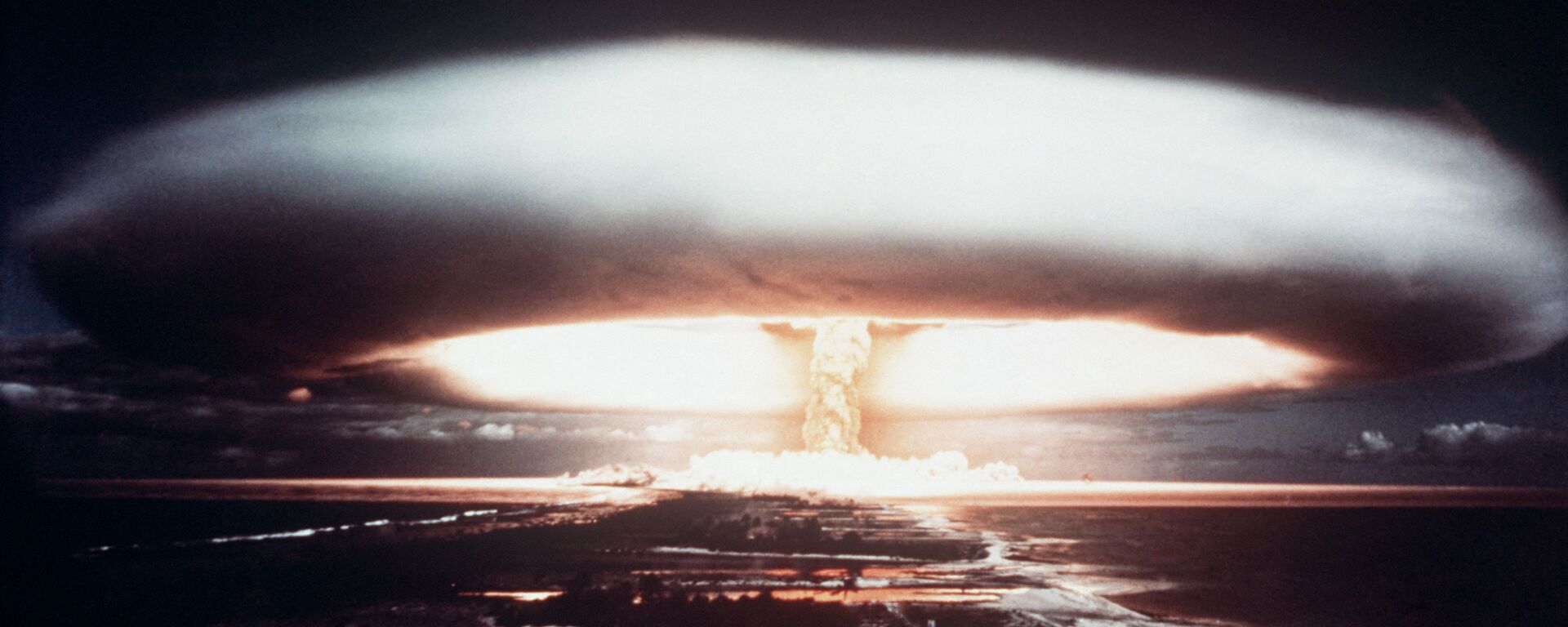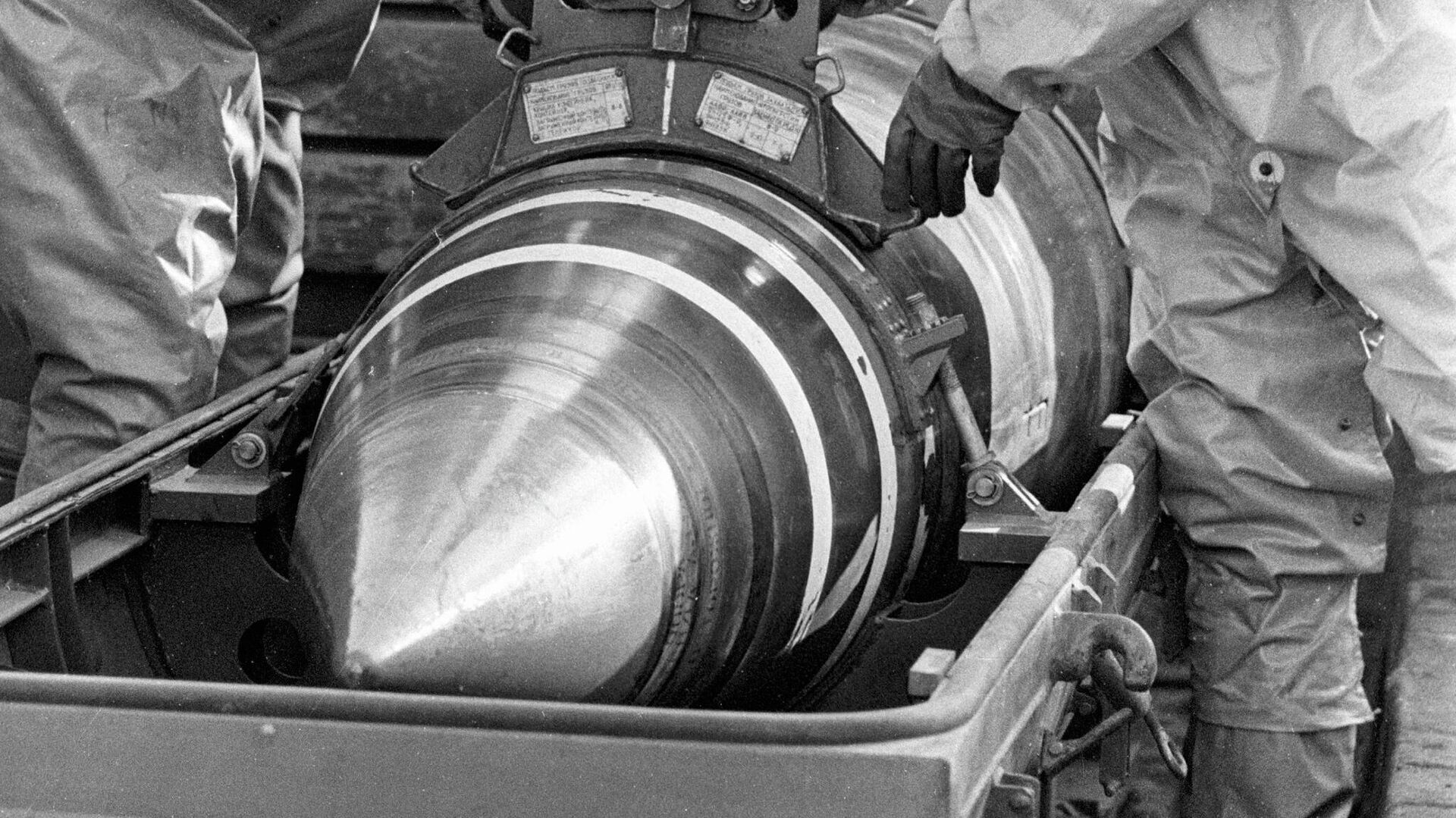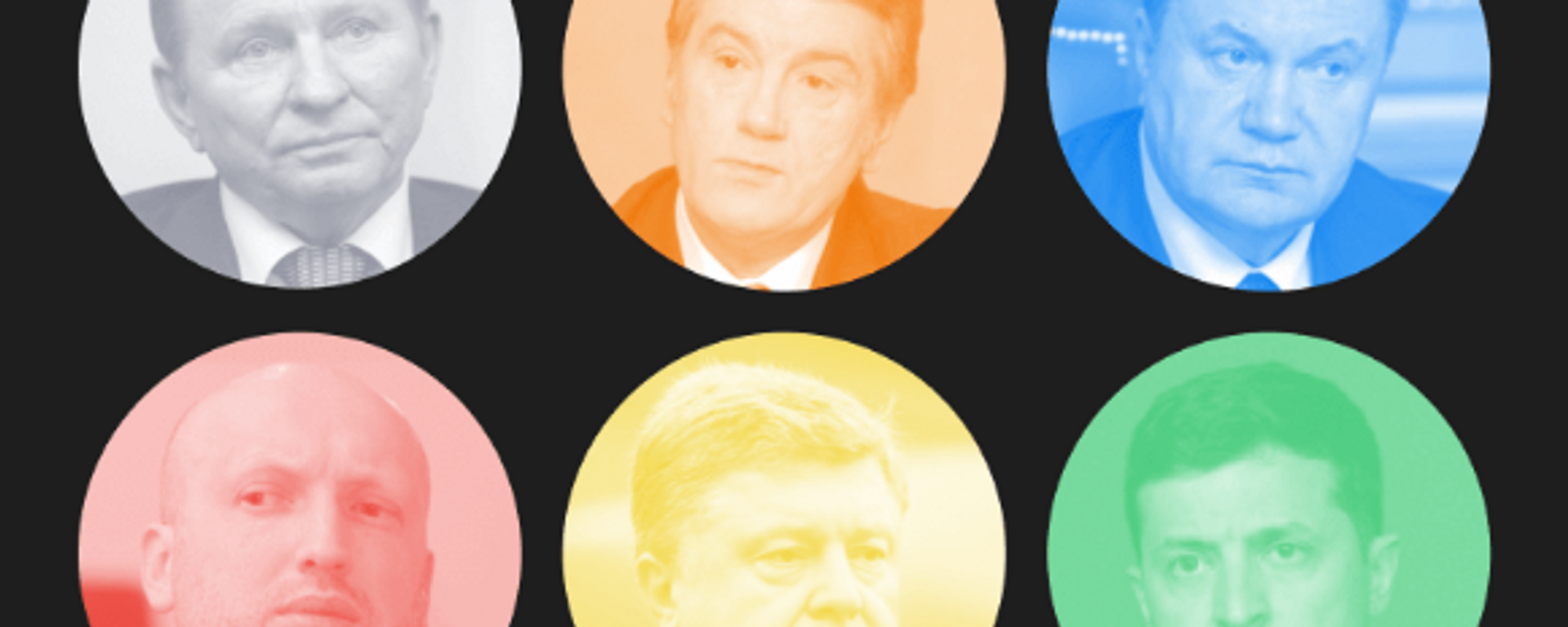https://sputnikglobe.com/20221024/ukrainian-dirty-bomb-threat-is-real-up-to-west-whether-they-want-to-believe-it-or-not-kremlin-1102574978.html
Ukrainian 'Dirty Bomb' Threat is Real, Up to West Whether They Want to Believe It or Not: Kremlin
Ukrainian 'Dirty Bomb' Threat is Real, Up to West Whether They Want to Believe It or Not: Kremlin
Sputnik International
On Sunday, Russian Defense Minister Sergei Shoigu warned his French, UK, US, and Turkish counterparts that Kiev may be preparing a false flag dirty bomb attack... 24.10.2022, Sputnik International
2022-10-24T09:54+0000
2022-10-24T09:54+0000
2022-11-03T19:05+0000
ukraine
russia's special operation in ukraine
dirty bomb
russia
sergey lavrov
volodymyr zelensky
sergei shoigu
dmitry peskov
https://cdn1.img.sputnikglobe.com/img/07e6/02/15/1093244176_0:1524:2047:2675_1920x0_80_0_0_4444461b3b9278b2965e9125b17e6587.jpg
The threat of Ukraine using a "dirty bomb" is real, and it's up to Western countries whether they want to believe in the danger or not, Kremlin spokesman Dmitry Peskov has said.Separately on Monday, Russian Foreign Minister Sergei Lavrov indicated that Moscow was preparing to raise the issue of Kiev's possible preparations to use a dirty bomb at the United Nations. The Russian top diplomat emphasized that Moscow's information on this matter is not an empty claim, and that the Foreign Ministry has information on Ukraine-based institutes capable of creating such arms.Russia's Defense Ministry reported Sunday that Shoigu had conveyed concerns about Kiev's potential use of a radioactive dirty bomb in phone calls with his French, UK, US, and Turkish counterparts. According to Russian military intelligence, the bomb's development has reached its final stage.US, European, and Ukrainian officials have dismissed Moscow's concerns, with Ukrainian Foreign Minister Dmytro Kuleba tweeting Sunday that his country was a committed party to the Non-Proliferation Treaty, and "neither ha[s] any 'dirty bombs', nor plan[s] to acquire any." Ukrainian President Volodymyr Zelensky similarly denied the allegations, alleging that "if Russia calls and says that Ukraine is allegedly preparing something, it means one thing: Russia has already prepared all this." Moscow's concerns of Kiev's possible use of a dirty bomb come amid growing fears of a nuclear escalation in Ukraine among Western officials and media, many of them apparently misinformed on (or deliberately fibbing about) Russia's nuclear doctrine, which prohibits the use of nuclear weapons of any kind in the absence of an existential threat to the nation, or the use of WMDs against Russia.Russian officials have repeatedly expressed concerns over Ukraine's potential nuclear ambitions, pointing out that the country has retained nuclear weapons know-how since Soviet days, and that Kiev has repeatedly threatened to build such weapons in recent years. On February 19, just days before Russia kicked off its military operation in Ukraine, President Zelensky threatened to revive Kiev's non-nuclear status. Last year, Ukraine's ambassador to Germany warned that Ukraine could become a nuclear-armed state again if it wasn't accepted into NATO. In March, Russian foreign intelligence said its information confirmed that Kiev has an active nuclear weapons program.Ukraine inherited about one third of the USSR's massive strategic nuclear arsenal after the country's collapse in 1991, including some 1,700 warheads, but the launch codes remained in Russia's hands. Ukraine gave up these nukes after signing the 1994 Budapest Memorandum - an agreement which guaranteed Kiev's security in exchange for its renunciation of nuclear weapons. The agreement was undermined by the February 2014 US-sponsored coup in Kiev, in which the country's democratically-elected government was overthrown, sparking a security crisis in eastern Ukraine which ultimately culminated in today's conflict between Ukraine and Russia.
https://sputnikglobe.com/20221023/kiev-preparing-nuclear-incident-provocation-against-russia-sources-say-1102544673.html
https://sputnikglobe.com/20220411/ukraine-from-2004-to-2022-from-the-first-maidan-to-catastrophe-1094623112.html
ukraine
russia
Sputnik International
feedback@sputniknews.com
+74956456601
MIA „Rossiya Segodnya“
2022
News
en_EN
Sputnik International
feedback@sputniknews.com
+74956456601
MIA „Rossiya Segodnya“
Sputnik International
feedback@sputniknews.com
+74956456601
MIA „Rossiya Segodnya“
ukraine, dirty bomb, russia, sergey lavrov, volodymyr zelensky, sergei shoigu, dmitry peskov
ukraine, dirty bomb, russia, sergey lavrov, volodymyr zelensky, sergei shoigu, dmitry peskov
Ukrainian 'Dirty Bomb' Threat is Real, Up to West Whether They Want to Believe It or Not: Kremlin
09:54 GMT 24.10.2022 (Updated: 19:05 GMT 03.11.2022) On Sunday, Russian Defense Minister Sergei Shoigu warned his French, UK, US, and Turkish counterparts that Kiev may be preparing a false flag dirty bomb attack on its own territory to accuse Moscow of using weapons of mass destruction. Western officials and officials in Kiev have dismissed the warning.
The threat of Ukraine using a "dirty bomb" is real, and it's up to Western countries whether they want to believe in the danger or not, Kremlin spokesman Dmitry Peskov has said.
"The fact that they do not trust the information which was provided by the Russian side does not mean that the threat of the use of such a dirty bomb ceases to exist. The threat is present. This information was brought to the attention of the [Russian] defense minister's interlocutors. It's up to them whether they want to believe it or not," Peskov told journalists in a briefing Monday.
Separately on Monday, Russian Foreign Minister Sergei Lavrov indicated that Moscow was preparing to raise the issue of Kiev's possible preparations to use a dirty bomb at the United Nations. The Russian top diplomat emphasized that Moscow's information on this matter is not an empty claim, and that the Foreign Ministry has information on Ukraine-based institutes capable of creating such arms.
"We have specific information about the scientific institutions in Ukraine which have the technology to build a dirty bomb. We have information which we've double-checked using the appropriate channels confirming that this is not an empty suspicion, and that there is good reason to believe that such [provocations] can be planned," Lavrov said.
Russia's Defense Ministry
reported Sunday that Shoigu had conveyed concerns about Kiev's potential use of a radioactive dirty bomb in phone calls with his French, UK, US, and Turkish counterparts. According to Russian military intelligence, the bomb's development has reached its final stage.
US,
European, and Ukrainian officials have
dismissed Moscow's concerns, with Ukrainian Foreign Minister Dmytro Kuleba tweeting Sunday that his country was a committed party to the Non-Proliferation Treaty, and "neither ha[s] any 'dirty bombs', nor plan[s] to acquire any." Ukrainian President Volodymyr Zelensky similarly denied the allegations,
alleging that "if Russia calls and says that Ukraine is allegedly preparing something, it means one thing: Russia has already prepared all this."
Moscow's concerns of Kiev's possible use of a dirty bomb come amid growing fears of a nuclear escalation in Ukraine among Western officials and media, many of them apparently misinformed on (or deliberately fibbing about)
Russia's nuclear doctrine, which prohibits the use of nuclear weapons
of any kind in the absence of an existential threat to the nation, or the use of WMDs against Russia.

23 October 2022, 08:49 GMT
Russian officials have repeatedly expressed concerns over Ukraine's potential nuclear ambitions, pointing out that the country has retained nuclear weapons know-how since Soviet days, and that Kiev has repeatedly threatened to build such weapons in recent years. On February 19, just days before Russia kicked off its military operation in Ukraine, President Zelensky
threatened to revive Kiev's non-nuclear status. Last year, Ukraine's ambassador to Germany
warned that Ukraine could become a nuclear-armed state again if it wasn't accepted into NATO. In March, Russian foreign intelligence
said its information confirmed that Kiev has an active nuclear weapons program.
Ukraine inherited about one third of the USSR's massive strategic nuclear arsenal after the country's collapse in 1991, including some 1,700 warheads, but the launch codes remained in Russia's hands. Ukraine gave up these nukes after signing the 1994 Budapest Memorandum - an agreement which guaranteed Kiev's security in exchange for its renunciation of nuclear weapons. The agreement was undermined by the February 2014 US-sponsored coup in Kiev, in which the country's democratically-elected government was overthrown, sparking a security crisis in eastern Ukraine which ultimately culminated in today's conflict between Ukraine and Russia.




